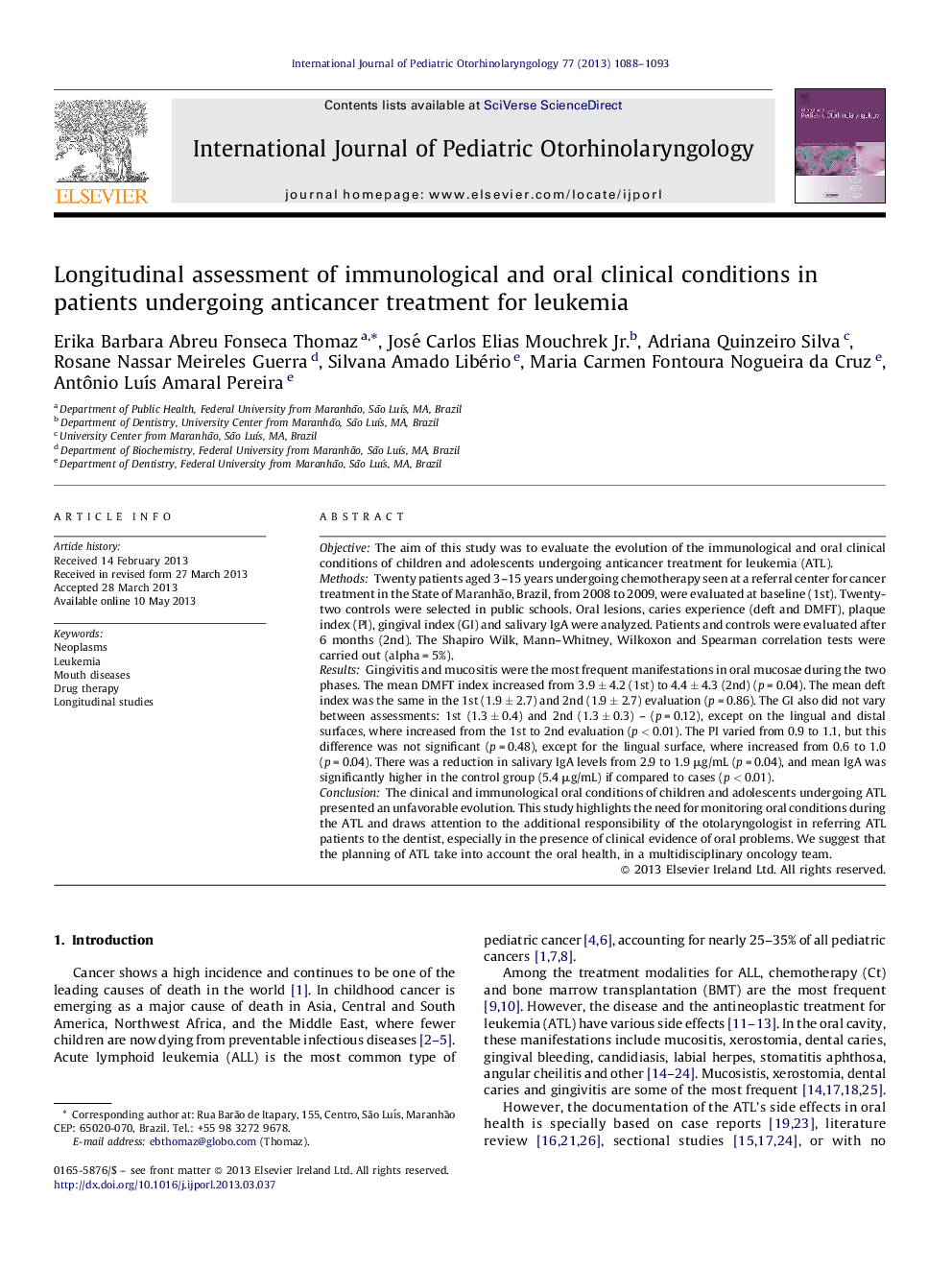| کد مقاله | کد نشریه | سال انتشار | مقاله انگلیسی | نسخه تمام متن |
|---|---|---|---|---|
| 4112391 | 1606018 | 2013 | 6 صفحه PDF | دانلود رایگان |

ObjectiveThe aim of this study was to evaluate the evolution of the immunological and oral clinical conditions of children and adolescents undergoing anticancer treatment for leukemia (ATL).MethodsTwenty patients aged 3–15 years undergoing chemotherapy seen at a referral center for cancer treatment in the State of Maranhão, Brazil, from 2008 to 2009, were evaluated at baseline (1st). Twenty-two controls were selected in public schools. Oral lesions, caries experience (deft and DMFT), plaque index (PI), gingival index (GI) and salivary IgA were analyzed. Patients and controls were evaluated after 6 months (2nd). The Shapiro Wilk, Mann–Whitney, Wilkoxon and Spearman correlation tests were carried out (alpha = 5%).ResultsGingivitis and mucositis were the most frequent manifestations in oral mucosae during the two phases. The mean DMFT index increased from 3.9 ± 4.2 (1st) to 4.4 ± 4.3 (2nd) (p = 0.04). The mean deft index was the same in the 1st (1.9 ± 2.7) and 2nd (1.9 ± 2.7) evaluation (p = 0.86). The GI also did not vary between assessments: 1st (1.3 ± 0.4) and 2nd (1.3 ± 0.3) – (p = 0.12), except on the lingual and distal surfaces, where increased from the 1st to 2nd evaluation (p < 0.01). The PI varied from 0.9 to 1.1, but this difference was not significant (p = 0.48), except for the lingual surface, where increased from 0.6 to 1.0 (p = 0.04). There was a reduction in salivary IgA levels from 2.9 to 1.9 μg/mL (p = 0.04), and mean IgA was significantly higher in the control group (5.4 μg/mL) if compared to cases (p < 0.01).ConclusionThe clinical and immunological oral conditions of children and adolescents undergoing ATL presented an unfavorable evolution. This study highlights the need for monitoring oral conditions during the ATL and draws attention to the additional responsibility of the otolaryngologist in referring ATL patients to the dentist, especially in the presence of clinical evidence of oral problems. We suggest that the planning of ATL take into account the oral health, in a multidisciplinary oncology team.
Journal: International Journal of Pediatric Otorhinolaryngology - Volume 77, Issue 7, July 2013, Pages 1088–1093